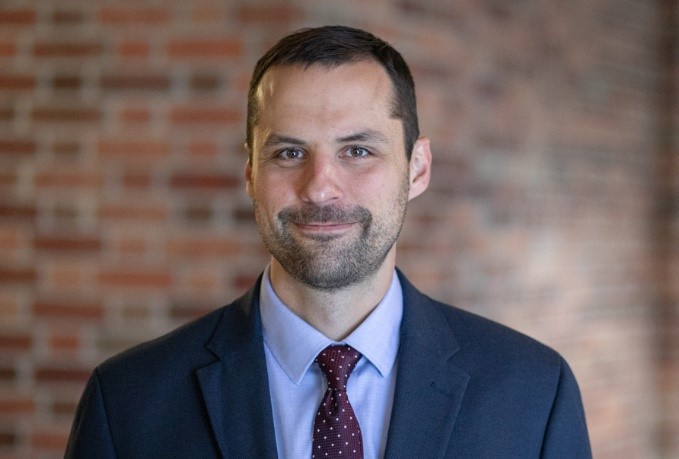Statistics and Data Science Education: Connecting Disciplines
Together with UQ’s morning symposium Statistics and Data Science Education in Society, the day’s theme is Statistics and Data Science Education for All.
Please note that the registration is currently only for the QUT afternoon symposium, with the option to register for drinks after the event (registration essential).
Details and registration for the UQ morning symposium available here:
https://hass.uq.edu.au/event/14790/data-science-education-digital-society
DATE: 23rd June 2023, 2:00 - 5:30 pm
VENUE: Gibson Room, Z block level 10 (Z-1064), Gardens Point Campus, QUT
Zoom details will be sent with registration.
PROGRAM:
2:00 - 3:00 PM
|
Matt Beckman, Department of Statistics and Statistics & Data Science Education Research Lab, Penn State University
Title: Progress toward natural language processing (NLP) assisted formative assessment feedback
Discussant: Michael Bulmer, UQ
|
3:00 - 3:30 PM
|
Afternoon Tea
|
3:30 - 4:30 PM
|
Dani Ben-Zvi, Professor in Statistics Education and Educational Technologies, Faculty of Education, University of Haifa, Israel.
Title: Reasoning with Data across Disciplines in Student-Based Citizen Science
Discussant: Helen MacGillivray, QUT
|
4:30 - 5:30 PM
|
Nibbles and networking
|
5:30 PM
|
Drinks and further discussion at Will and Flow
|
Speaker: Matt Beckman, Department of Statistics and Statistics & Data Science Education Research Lab, Penn State University

Title: Progress toward natural language processing (NLP) assisted formative assessment feedback
Abstract: This talk seeks to articulate the benefit of free-response tasks and timely formative assessment feedback, a roadmap for developing human-in-the-loop natural language processing (NLP) assisted feedback, and results from a pilot study establishing proof of principle. If we are to pursue Statistics and Data Science Education for all, we will surely encounter both opportunity and necessity to develop scalable solutions for pedagogical best practices. Research suggests "write-to-learn" tasks improve learning outcomes, yet constructed-response methods of formative assessment become unwieldy when class sizes grow large. In the pilot study, several short-answer tasks completed by nearly 2000 introductory statistics students were evaluated by human raters and an NLP algorithm. Results indicate substantial inter-rater agreement using quadratic weighted kappa for rater pairs (each QWK > 0.74) and group consensus (Fleiss’ Kappa = 0.68). With compelling rater agreement, the study then examines a preliminary cluster analysis of response text as a mechanism for scalable formative assessment. The talk will conclude with recent developments building upon this pilot, as well as implications for teaching and future research.
Short Bio: Matthew Beckman is an Associate Research Professor and Chair for Undergraduate Curricula in the Department of Statistics at Penn State University (USA). Prior to Penn State, he earned a MS in Statistics and PhD in Educational Psychology with an emphasis on Statistics Education from the University of Minnesota (USA), and worked for 8 years as a Senior Statistician in the medical technology industry. Matthew is founder of the Statistics & Data Science Education Research Lab at Penn State, Principal Investigator of NSF-funded Project CLASSIFIES, and serves as Associate co-Director for Research with the US-based Consortium for the Advancement of Undergraduate Statistics Education (CAUSE).
Dani Ben-Zvi, Professor in Statistics Education and Educational Technologies, Faculty of Education, University of Haifa, Israel.

Title: Reasoning with Data across Disciplines in Student-Based Citizen Science
Abstract: The United Nation’s fourth sustainable development goal calls for inclusive and equitable quality education for all. This includes broad educational goals such as supporting students’ agency to navigate a complex and uncertain world with broad sets of knowledge, skills, attitudes, and values across disciplines. Based on our work at the Taking Citizen Science to School (TCSS) research center, we find an opportunity to achieve such goals in school participation in a social phenomenon, known as citizen science, where scientists partner with the public to advance scientific research. Specifically, as citizen science often involves exploration of large and messy sets of data, school-based citizen science is a highly fertile ground for nurturing both scientific and data literacies among students across disciplines.
For instance, in the TCSS Radon project, implemented in dozens of school in Israel, students learned from scientists about the Radon gas and some unsolved scientific issues regarding its nature and measurement. They collected data by measuring Radon concentration levels in their homes, analyzed a collective dataset from all schools, made informal inferences, and communicated them to their community and to the scientists. Their learning was scaffolded by a sequence of learning activities co-designed by the TCSS community and unique technology-enhanced tools to support data analysis and modeling. Findings indicate mutual benefits for students and scientists. Students developed competences for making sense of large and messy datasets, and for making informed informal inferences based on their explorations. The scientists, based on the data collected by students, developed an easy-to-use, inexpensive and short-term technique for measuring Radon levels and identifying buildings with high Radon concentrations.
Short Bio: Dani Ben-Zvi is a professor in statistics education and educational technologies in the Faculty of Education at the University of Haifa, Israel. He is the head of the Department of Learning and Instructional Sciences. His research interests draw upon two central aspects of human life: Statistical thinking and technology. He is the co-founder and a co-chair of the International Collaboration for Research on Statistical Reasoning, Thinking, and Literacy (SRTL), a leading research group in the area of statistics education. He is the President-Elect of the International Association for Statistical Education (IASE).
This event is hosted by QUT's Centre for Data Science, in association with the Queensland Branch of the Statistical Society of Australia and QUT's School of Mathematical Sciences.
